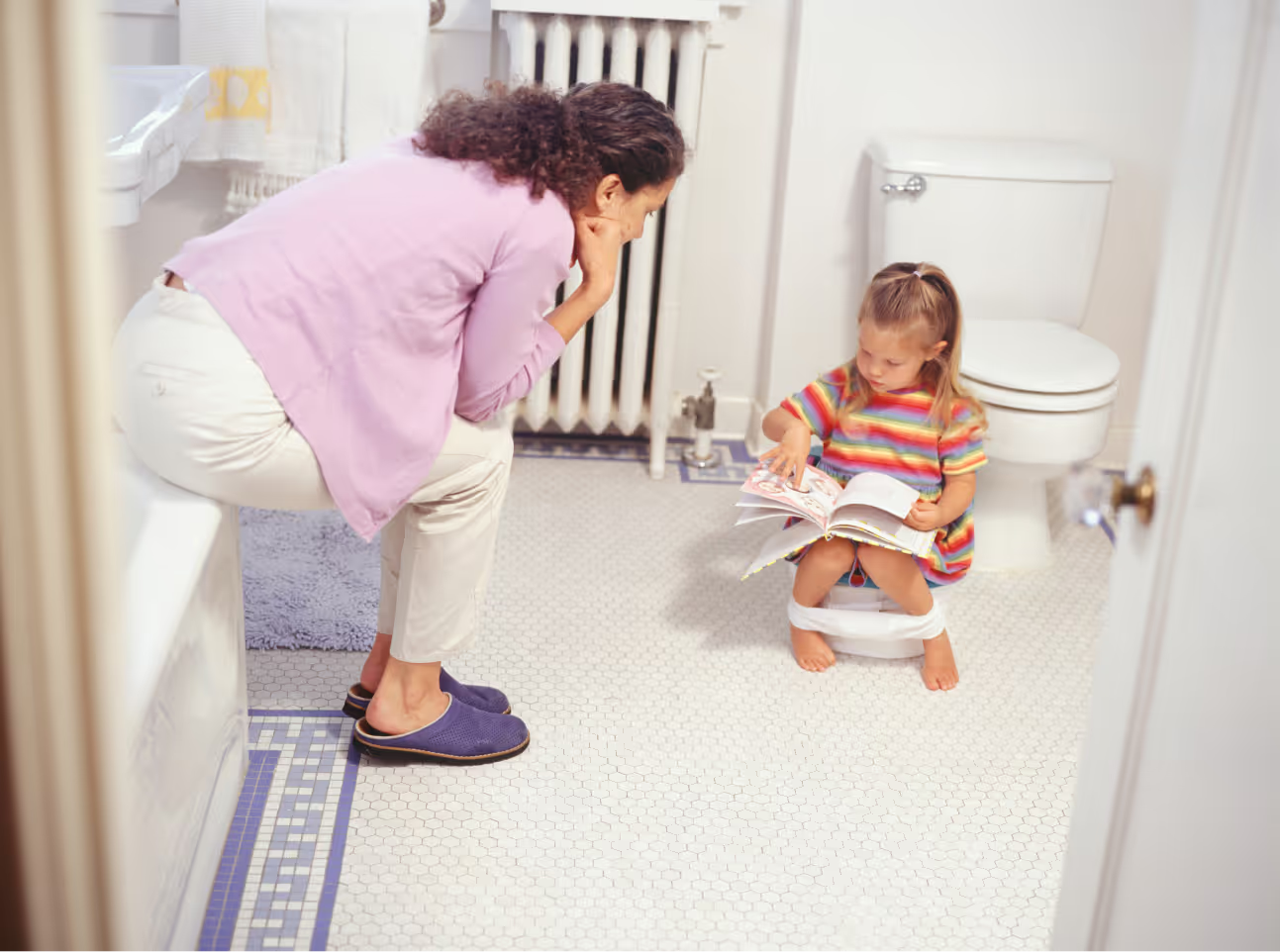
Potty training is an important milestone for both children and parents. But many parents worry in advance: "How exactly does this work and when is the right time to start?" In this article, we clearly explain how the potty training process works, so you know exactly what to expect.
Awareness as the first step
As a baby, your child is not yet aware of his bodily functions and urinates or defecates as needed. As your baby gets older, it develops distinct stages of awareness:
- At first, your child doesn't notice that they have peed or pooped until afterwards.
- Then it recognizes these signals as they happen.
- Eventually, your baby will feel the urge to pee or poop beforehand. This is the ideal time to really start potty training.
It helps if during this phase you clearly name what you see and what your child is doing. For example, "You have a wet diaper," or "Are you going to poop now?" This way your child learns to make connections between what he feels and what is happening.
{{test="/components"}}
Practicing with the potty
Once your child recognizes his body's signals, the next phase begins: practice using the potty or toilet. Make it a daily routine to go to the potty at set times, such as after sleep, after meals, or when you see clear signs that your child needs to pee or poop.
In the beginning, patience is essential. Not everything will go right right away. In fact, mishaps are perfectly normal and offer valuable learning moments. Always try to remain positive and calm, without putting pressure on your child.
Daytime and nighttime toilet training: two separate processes
Daytime and nighttime toilet training develop separately. During the day, your child learns to consciously respond to signals from the body. Nighttime potty training often takes a little longer because your child does not always wake up from a full bladder during sleep. This process usually progresses naturally after your child becomes potty-trained during the day.
Give your child confidence and patience
Each child develops at his or her own pace. Most children become potty-trained between the ages of 2 and 4, with 2 being the ideal starting point. Potty training is not a competition, so give your child confidence, attention and patience. This way you will make the experience enjoyable and stress-free for both you and your child.

.svg)




%20Ledenlogo2.png)